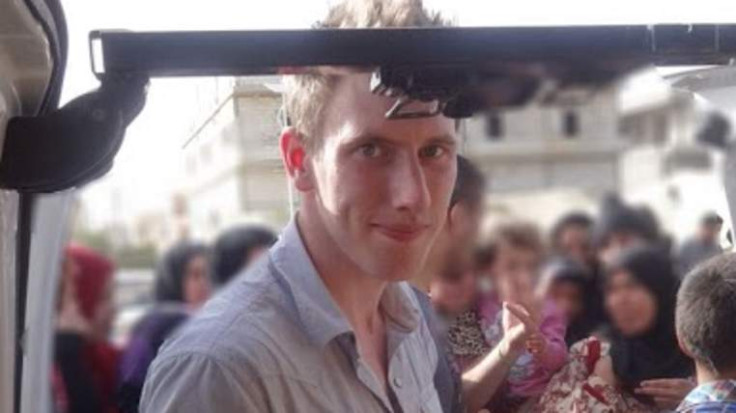Peter Kassig Beheading: Academics 'Prove' Executions Do Not Help Terror Groups Achieve Aims

As the world reels from the brutal execution of aid worker Peter Kassig by knife-wielding Isis (Islamic State) militants, academics claim they have uncovered proof that executing hostages does not help terror groups achieve their aims.
Max Abrahms of Northeastern University and Matthew S Gottfried of UCLA argue that an analysis of thousands of hostage situations involving terrorist groups shows that the execution of hostages is counterproductive.
"Escalating [by committing violence] against the captives is consistently the worst tactical option, particularly when civilians are the target of pressure," the authors write.
In the study Does Terrorism Pay? An Empirical Analysis, the authors study data from more than a thousand international hostage situations between 1968 and 2005, in which terrorist kidnappers attempted a variety of tactics for forcing governments to comply with their demands.
They argue that the data shows terrorist groups which issue financial demands are most likely to have them met, and that democratic governments are more likely to resist demands.
Islamic State (IS) reportedly demanded millions in exchange for the release of hostages in negotiations with governments and their families.
European countries including France and Spain have been criticised for allegedly caving into demands from the jihadist group, and paying money in exchange for securing the release of nationals held in captivity.
The US and the UK have refused to pay for the release of hostages.
IS has also reportedly offered to free captives in exchange for the release of jihadist captives, including 'Lady al Qaida', or Afia al Siddiqui, an MIT trained neuroscientist who planned chemical weapons attacks on the West.
The authors also found that the size and military might of countries had no impact on a government's willingness to negotiate.
In one of the study's key claims, the authors found that groups which kill or wound captives significantly reduce their chances of attaining their objectives.
They argue that the extra bargaining power groups gain from not harming hostages, is equivalent to that gained by holding 99 extra hostages.
"For achieving the most testable type of non-state demands, the decision to escalate is ostensibly quite folly," argue Abrahms and Gottfried.
In a recent edition of its propaganda magazine Dabiq, IS blames the US and UK governments for failing to negotiate with it, forcing it to murder hostages it had seized.
Some experts though argue that the group believes that it has more to gain from the terror spread by beheading hostages, than by attaining its proclaimed bargaining objectives.
© Copyright IBTimes 2025. All rights reserved.






















